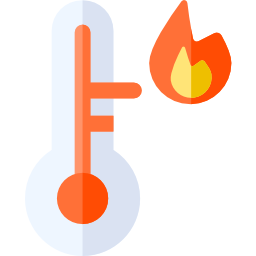One of the most bothersome trouble that can appear on a Chevrolet Cobalt is to watch its temperature gauge increasing. The truth is, a gauge that rises above 90/100° is generally a symptom that your Chevrolet Cobalt is heating up. If you are in this case, you made the good choice to click on this link because we will make it easier for you to find the cause and understand the trigger. To achieve this, in the beginning, we will look at the causes for engine overheating and the consequences you run, and next, what answers are available to you to get rid of this phenomenon.

Why is my Chevrolet Cobalt overheating? What are the risks?
A Chevrolet Cobalt that heats up is an indicator of a major issue. You should not think that you will handle it later on because, if you do, you risk irreversibly damaging the engine of your car. In truth, if your Chevrolet Cobalt heats up, and you keep driving, you simply risk the breakage of your car engine. An internal combustion engine works through combustion, which triggers heat. This heat must be regulated because it can damage the engine parts. If you see white smoke starting to surface of your engine and you can feel a loss of power, your Chevrolet Cobalt is heating up and you are damaging your engine, you must stop.
What are the causes of an heating up Chevrolet Cobalt ?
- A leak in the cooling system
If you repeatedly run out of coolant and refill your system frequently, you could have a leak, so have your system examined for leaks. It is also plausible that it is your cylinder head gasket that is faulty, in which case you should see “mayonnaise” in the area of your engine oil cap. - A dead calorstat
The task of this part is to switch on the engine cooling only when the engine is at optimum temperature, if it is broken, the coolant will never reach the engine and your Chevrolet Cobalt will heat up. Check its state. - A blocked radiator
Even though this situation is less common, if your radiator is very dirty, or clogged with impurities, its cooling fins will no longer conduct their task and on hot days your Chevrolet Cobalt can overheat. - A fan that no longer operates
Be sure you examine the state and performance of your fan, moreover to the air produced by the speed of your Chevrolet Cobalt, it has an important role in cooling your engine when it has to be the relay when you drive slower. In the instance of a breakdown and travelling at low speed, your car will obviously heat up. - A damaged water pump
To finish , it is plausible that your water pump is at the end of its life. In truth, its duty is to rotate the coolant throughout the circuit, in case of problem this action stops and your Chevrolet Cobalt heats up. This can be due to a defective belt that has broken your pump. If this is your case, go to your garage area.
How can I fix the issue of an heating up Chevrolet Cobalt?
In addition to having examined all the parts that may be causing your Chevrolet Cobalt to heat up, you will have to make the right resolutions to limit the risks in case your car gets hot and you have no other option than to go home, or to go to your repair shop.
Here are a few tips if your car is overheating:
- Reduce your engine speed but not your speed:
Reducing your engine speed will allow you to limit the heat emitted by the engine. On the other hand, try to stay in 5th gear at 70/80 km/h in order to have a large natural airflow to limit the heating of your Chevrolet Cobalt. - Stop the engine of your Chevrolet Cobalt if you go above 100°:
Don’t be in a rush, in a case of overheating, it is better to take breaks and let the engine cool down rather than pushing it and risking breakage. - Turn on your heater:
Turning on the heater will let you to gets rid of some of the heat from the engine block, it is an efficient remedy. And conversely, turn off your air conditioner which generates heat.
If you want more guides on the Chevrolet Cobalt, go to our Chevrolet Cobalt category.

